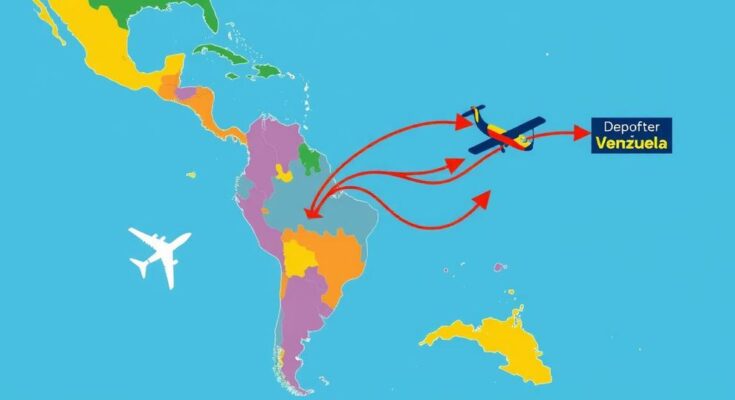U.S. President Donald Trump resumes aggressive immigration policies during his second term, focusing on Latin American migration. He revitalizes earlier methods mandating cooperation from Latin governments on deportations. With over half of U.S. immigrants from this region, these strategies could impact millions. AS/COA is tracking these developments and candidates’ positions on immigration.
In a decisive move on the first day of his second term, U.S. President Donald Trump declared a national emergency concerning immigration and designated migration as an invasion. This fervent focus on immigration mirrors the priorities he emphasized during his 2024 presidential campaign, in which approximately 15 percent of U.S. voters identified migration as the nation’s most pressing issue, trailing only inflation, as reported by YouGov.
The ramifications of Trump’s immigration policy are particularly relevant to Latin America, from which over half of the U.S. foreign-born population stems, according to the 2023 census. This data reveals nearly 24.5 million individuals originating from this region. Furthermore, Pew Research Center estimates that Latin Americans constitute around 77 percent of the approximately 11 million undocumented migrants in the United States.
During his initial term from 2017 to 2021, Trump enacted policies compelling Latin American governments to take stronger measures against migration and accept deportees. Now, he is reactivating and intensifying these strategies and is additionally seeking to reinterpret the 14th Amendment to end birthright citizenship, employing threats of repercussions for nations that fail to comply with his deportation requests.
The Americas Society/Council of the Americas (AS/COA) is closely monitoring Trump’s immigration strategies, detailing recent initiatives, campaign promises, and noting differences from his previous term. They also observe his administration’s actions concerning trade and immigration, spanning multiple aspects of U.S.-Latin American relations.
Additionally, articles highlight challenges such as Venezuela’s increasing emigration following alleged election fraud, deliberations on militarizing U.S. borders, discussions of labeling cartels as terrorist organizations, and curtailing foreign aid. The upcoming U.S. presidential candidates’ stances on immigration and trade issues pertinent to the region are also subjects of scrutiny.
AS/COA aims to provide comprehensive insight into major U.S. policies impacting Latin American migrants and asylum seekers, ranging from Title 42 to Temporary Protected Status (TPS).
In summary, President Trump’s second term commences with a significant emphasis on immigration, especially concerning Latin America. His administration is keen on implementing stringent policies reminiscent of those from his first term, targeting both undocumented migrants and foreign governments’ responsibilities regarding deportation. The potential implications for millions of Latin Americans and the region as a whole remain substantial and are under continuous observation by AS/COA and other organizations.
Original Source: www.as-coa.org




